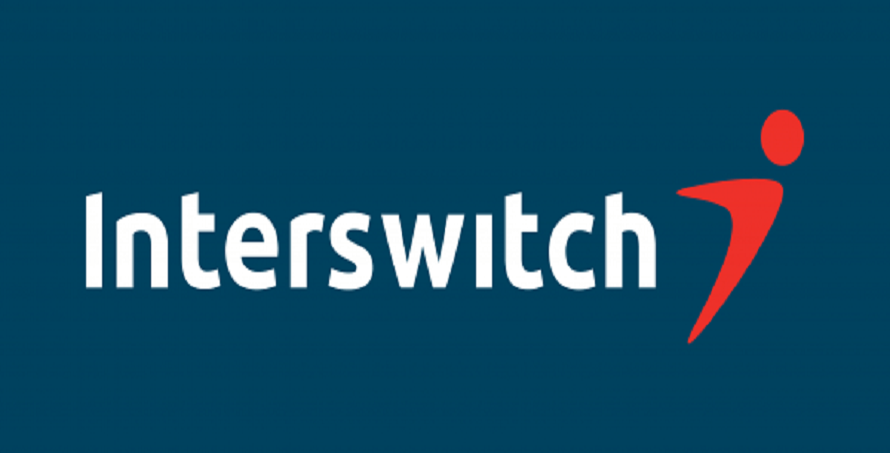Technology
Visa Buys Stake in Interswitch to Raise Value to $1bn

By Modupe Gbadeyanka
World leader in digital payments, Visa Incorporated, has invested millions of Dollars in leading technology-driven company in Nigeria, Interswitch Limited to raise the valuation of the valuable African FinTech business to $1 billion.
A statement from Interswitch confirmed that Visa is joining its fold as a minority shareholder, with the transactions, expected to close by Q1 2020, subject to relevant regulatory approvals.
There had been reports that Visa invested about $200 million in Interswitch to take 20 percent controlling stake in the Nigerian firm, but Interswitch, which did not confirm this, said the strategic partnership between both organisations will further advance the digital payments ecosystem across Africa.
However, it noted that Visa will join globally renowned investors, Helios Investment Partners, TA Associates and IFC, as shareholders in Interswitch, alongside company management.
The statement said the deal will create an instant acceptance network across Africa to benefit consumers and merchants and facilitate greater connectivity for communities. Both parties will also retain their respective independent solutions, and Interswitch will retain its scheme neutral strategy.
Founder and CEO of Interswitch, Mr Mitchell Elegbe, stated that, “Sub-Saharan Africa is the fastest growing payments market in the world, with growth driven by a young and dynamic population, rapidly evolving consumer behaviour, and an increasing desire for payment solutions that can be accepted across the continent and abroad. I am delighted that Interswitch has formed a partnership with Visa, with whom we plan to drive the next phase of transformation in the African payments landscape.”
On his part, Regional President of CEMEA at Visa, Mr Andrew Torre, said, “Africa is a priority region for us, and we continually seek strategic partnerships with local players to further strengthen our leadership position and enhance the payments ecosystem across the continent.
“This partnership aligns with our global strategy to work with and invest in innovative partners, and we look forward to working with Interswitch to provide new consumer and merchant experiences and support the rapid growth of digital commerce across Africa.”
Co-founder and Managing Partner of Helios, Mr Babatunde Soyoye, noted that, “A strategic investment by Visa, the world’s leader in digital payments, into Interswitch is a substantial endorsement of the Company’s expertise in African payments.
“As an active investor in leading African payments businesses, we see tremendous opportunities to digitise payments across the continent and have worked closely with Interswitch’s management team to build a high quality and scalable platform geared to address some of these opportunities. We look forward to further collaboration with the Company alongside Visa.”
Founded in 2002, Interswitch disrupted the traditional cash-based payments value chain in Nigeria by introducing electronic payments processing and switching services.
Today, Interswitch is a leading player in Nigeria’s developing financial ecosystem with omni-channel capabilities across the payments value chain, processing over 500 million transactions per month in May 2019.
In 2018, electronic payments in Africa accounted for only 12 percent of transactions by volume, compared to 54 per cent in Europe and 79 per cent in North America. Sub-Saharan Africa is the fastest-growing digital payments market in the world, with electronic payment volume expected to grow at a CAGR of approximately 35 percent from 2018 to 2023 in the region (excluding South Africa). This progress is expected to be driven by the deepening payments infrastructure, population and urbanisation growth, GDP growth above the global average, increased mobile and internet penetration, as well as a supportive regulatory landscape for electronic payments and financial inclusion.
Interswitch’s core market, Nigeria, is the largest economy in Africa with a rapidly growing electronic payments market. Point of Sale (POS) and ATM transactions per adult grew at a CAGR of 94 percent and 59 percent from 2013 to 2018, respectively.
In Nigeria, there were only 11 card transactions per adult per annum in 2018 compared to 92 in markets like South Africa, 126 in Brazil and 465 in the UK. Despite this market under-penetration, POS card transactions in Nigeria are expected to grow at a CAGR of 63 percent between 2018 and 2023.
In addition to its switching and processing services, Interswitch owns Verve, the largest domestic debit card scheme in Africa with more than 19 million cards activated on its network as of May 2019.
The business also operates Quickteller, a leading multichannel consumer payments platform, driving financial inclusion across Nigeria with over 270,000 access points, as of 2018, from which consumers can initiate peer-to-peer transfers, bill payments, airtime purchases, and other e-commerce transactions, processing over 42 million transactions monthly as of July 31, 2019 (equivalent to over N560 billion ($1.5 billion) through direct, indirect and Paypoint channels).
Interswitch’s unique market capabilities and strong consumer proposition, has enabled it to deliver consecutive years of sustainable profitable growth.
Technology
Capillary Technologies Acquires SessionM from Mastercard

By Modupe Gbadeyanka
A software product company established in 2012, Capillary Technologies India Limited, has acquired the customer engagement and loyalty company, SessionM, from Mastercard.
This followed a definitive agreement signed by the global leader in AI-powered customer loyalty and engagement solutions with the renowned digital payments firm.
The acquisition of SessionM is the latest in a series of strategic moves by Capillary, following its successful listing on the Indian Stock Exchange in November 2025.
With SessionM in its portfolio, Capillary reinforces its position as a global leader in enterprise loyalty, offering a leading platform to the world’s most sophisticated enterprise brands.
Mastercard has identified Capillary Technologies—consistently recognised as a Leader in The Forrester Wave as the ideal partner to lead SessionM into its next era of growth.
As part of the agreement, a specialised team within SessionM will transition to Capillary, ensuring that the platform’s deep technical expertise is preserved.
SessionM’s esteemed global customer base—which includes Fortune 500 retailers, airlines, and CPG brands—will continue to receive the same high-calibre support and service they experienced before the acquisition.
“M&A has been a key growth strategy for Capillary over the years, and as a public company, we are delivering on that promise to our shareholders and the market.
“By bringing SessionM into our portfolio, we are not just expanding our footprint across the globe; we are further strengthening our loyalty capabilities to deliver one of the industry’s most comprehensive offerings.
“Our mission remains to provide enterprises across industries with specialised, AI-native loyalty technology solutions,” the chief executive of Capillary Technologies, Aneesh Reddy, commented.
Technology
Emergent Ventures, Others Invest $2.2m in Potpie

By Dipo Olowookere
About $2.2 million pre-seed round to help engineering teams unify context across their entire stack and make AI agents genuinely useful in complex software environments has been announced by Potpie.
Potpie was established by Aditi Kothari and Dhiren Mathur, who were determined to unify context across the entire engineering stack and enabling spec driven development.
As generative AI adoption accelerates, most tools focus on surface-level code generation while ignoring the deeper problem of context.
Large language models are powerful, but without access to system-level understanding, tooling history, and architectural intent, they struggle in real production environments.
Traditional approaches rely on senior engineers to manually hold this context together, a model that breaks down at scale and fails when AI agents are introduced.
The platform enables teams to automate high-impact and non-trivial use cases across the software development lifecycle, like debugging cross-service failures, maintaining and writing end-to-end tests, blast radius detection and system design.
It is designed for enterprise companies with large and complex codebases, starting at around one million lines of code and scaling to hundreds of millions.
Rather than acting as another coding assistant, Potpie builds a graphical representation of software systems, infers behaviour and patterns across modules, and creates structured artefacts that allow agents to operate consistently and safely.
A statement made available to Business Post on Monday revealed that the funding support came from Emergent Ventures, All In Capital, DeVC and Point One Capital.
The capital will be used to support early enterprise deployments, expand the engineering team, and continue building Potpie’s core context and agent infrastructure, it was disclosed.
“As AI makes code generation easier, the real challenge shifts to reasoning across massive, interconnected systems. Potpie is our answer to that shift, an ontology-first layer that helps enterprises truly understand and manage their software,” Kothari was quoted as saying in the disclosure.
A Managing Partner at Emergent Ventures, Anupam Rastogi, said, “In large enterprises, the real challenge is not generating code, it is understanding the system deeply enough to change it safely.
“Potpie’s ontology-first architecture, combined with rigorous context curation and spec-driven development, creates a structured model of the entire engineering ecosystem. This allows AI agents to reason across services, dependencies, tickets, and production signals with the clarity of a senior engineer. That is what makes Potpie uniquely capable of solving complex RCA, impact analysis, and high-risk feature work even in codebases exceeding 50 million lines.”
Technology
Expert Reveals Top Cyber Threats Organisations Will Encounter in 2026

By Adedapo Adesanya
Organisations in 2026 face a cybersecurity landscape markedly different from previous years, driven by rapid artificial intelligence adoption, entrenched remote work models, and increasingly interconnected digital systems, with experts warning that these shifts have expanded attack surfaces faster than many security teams can effectively monitor.
According to the World Economic Forum’s Global Cybersecurity Outlook 2026, AI-related vulnerabilities now rank among the most urgent concerns, with 87 per cent of cybersecurity professionals worldwide highlighting them as a top risk.
In a note shared with Business Post, Mr Danny Mitchell, Cybersecurity Writer at Heimdal, said artificial intelligence presents a “category shift” in cyber risk.
“Attackers are manipulating the logic systems that increasingly run critical business processes,” he explained, noting that AI models controlling loan decisions or infrastructure have become high-value targets. Machine learning systems can be poisoned with corrupted training data or manipulated through adversarial inputs, often without immediate detection.
Mr Mitchell also warned that AI-powered phishing and fraud are growing more sophisticated. Deepfake technology and advanced language models now produce convincing emails, voice calls and videos that evade traditional detection.
“The sophistication of modern phishing means organisations can no longer rely solely on employee awareness training,” he said, urging multi-channel verification for sensitive transactions.
Supply chain vulnerabilities remain another major threat. Modern software ecosystems rely on numerous vendors and open-source components, each representing a potential entry point.
“Most organisations lack complete visibility into their software supply chain,” Mr Mitchell said, adding that attackers frequently exploit trusted vendors or update mechanisms to bypass perimeter defences.
Meanwhile, unpatched software vulnerabilities continue to expose organisations to risk, as attackers use automated tools to scan for weaknesses within hours of public disclosure. Legacy systems and critical infrastructure are especially difficult to secure.
Ransomware operations have also evolved, with criminals spending weeks inside networks before launching attacks.
“Modern ransomware operations function like businesses,” Mitchell observed, employing double extortion tactics to maximise pressure on victims.
Mr Mitchell concluded that the common thread across 2026 threats is complexity, noting that organisations need to abandon the idea that they can defend against everything equally, as this approach spreads resources too thin and leaves critical assets exposed.
“You cannot protect what you don’t know exists,” he said, urging organisations to prioritise visibility, map dependencies, and focus resources on the most critical assets.
-

 Feature/OPED6 years ago
Feature/OPED6 years agoDavos was Different this year
-
Travel/Tourism10 years ago
Lagos Seals Western Lodge Hotel In Ikorodu
-

 Showbiz3 years ago
Showbiz3 years agoEstranged Lover Releases Videos of Empress Njamah Bathing
-

 Banking8 years ago
Banking8 years agoSort Codes of GTBank Branches in Nigeria
-

 Economy3 years ago
Economy3 years agoSubsidy Removal: CNG at N130 Per Litre Cheaper Than Petrol—IPMAN
-

 Banking3 years ago
Banking3 years agoSort Codes of UBA Branches in Nigeria
-

 Banking3 years ago
Banking3 years agoFirst Bank Announces Planned Downtime
-

 Sports3 years ago
Sports3 years agoHighest Paid Nigerian Footballer – How Much Do Nigerian Footballers Earn












